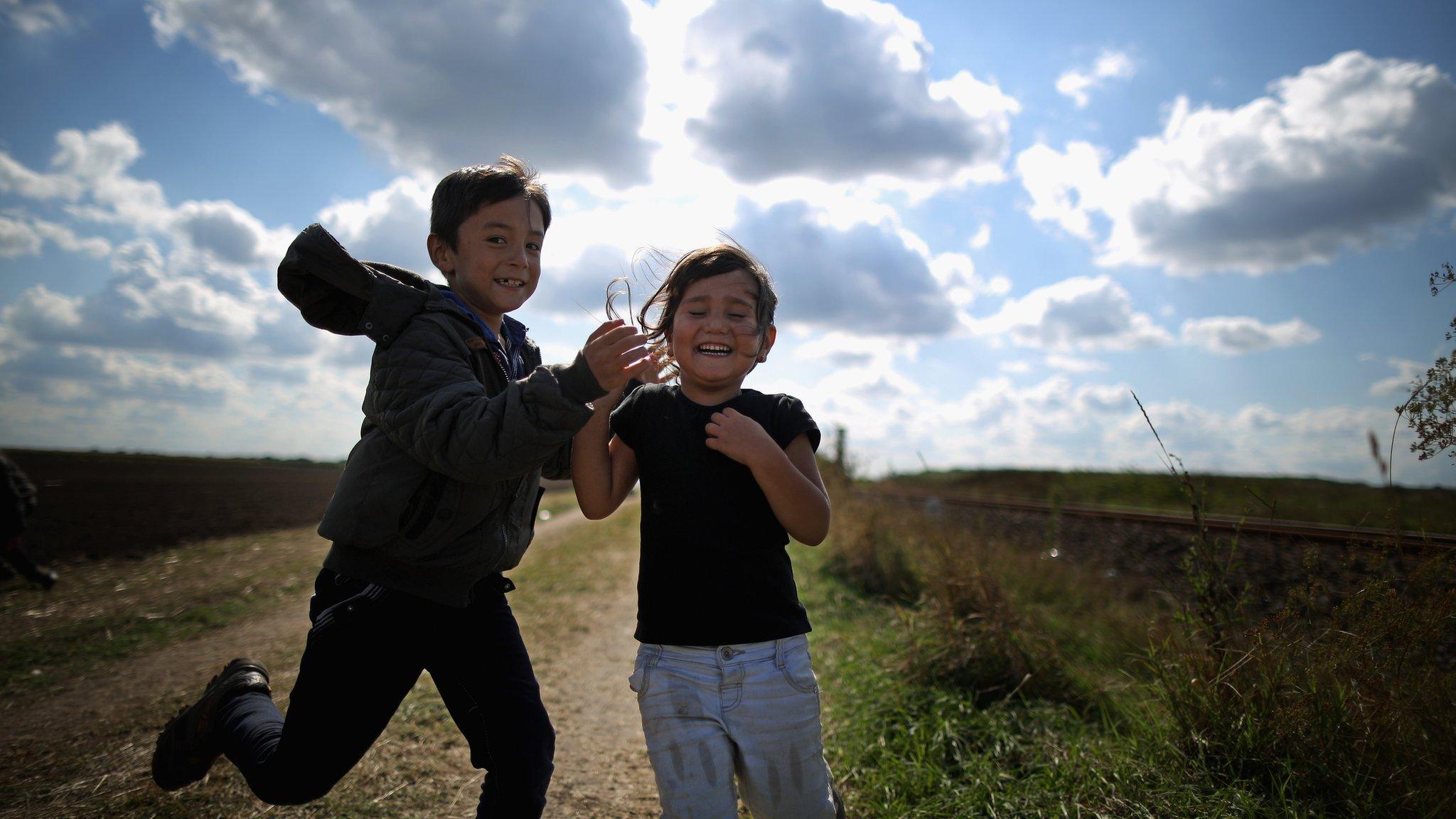First of 20,000 Syrian refugees arrive in UK
- Published
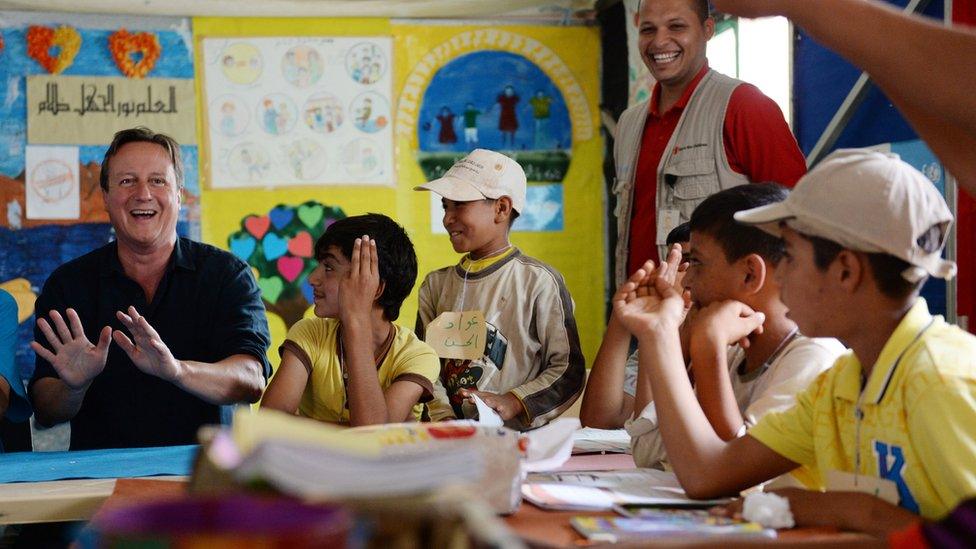
The prime minister visited the Za'atri refugee camp in Jordan earlier this month
The first Syrian refugees to be resettled in the UK since the government announced it was expanding its protection scheme have arrived.
The government has not disclosed how many were in the group nor clarified whether they were already due to arrive before the scheme was expanded.
The prime minister has pledged to take 20,000 Syrians from camps by 2020.
But there is no agreement yet between the government and local authorities about how to manage and pay for them.
The arrivals were announced on the day EU ministers backed a controversial migrant quota plan, which the UK has opted out of.
David Cameron discussed the migrant crisis with French President Francois Hollande when the leaders met at Chequers on Tuesday night, ahead of an EU leaders' summit on Wednesday.
They agreed that the summit must "focus on a more comprehensive approach, in particular increasing assistance for the countries neighbouring Syria to enable more refugees to stay there", a Downing Street spokesman said.
They also agreed that EU countries should do more to return migrants who do not have a genuine claim for asylum to their home countries.

What happens when the migrants arrive?
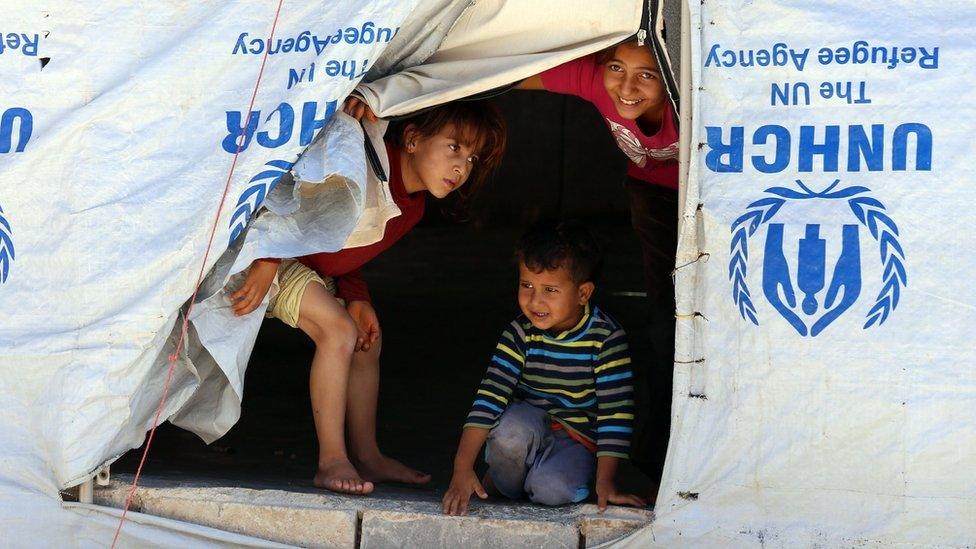
Refugees will travel to the UK from camps in countries neighbouring Syria, including Jordan
Analysis by Dominic Casciani, home affairs correspondent, BBC News
Once someone has been identified and approved, they have full legal rights to settle in the UK for five years - and for the first months, they will be accompanied every step of the way into their new life.
When they arrive in the UK, they are met at the airport by a welcome team who take them to their new home. And the next morning, their personalised integration plan begins.
Just like anyone else, they can work and claim benefits. Everything about life in the UK is explained to them in briefings and classes.
School places are ready for their children, there is a GP already set up to take them on and, where necessary, specialists to work on their long-term health problems.
There are trips to the job centre and colleges for those ready to go back to work or study.

The refugees who arrived in the UK as part of the vulnerable persons resettlement (VPR) scheme will join others who have been given legal protection and access to housing, employment, education and, where they need it, expert medical care.
The government has not disclosed where they will be resettled.
A Home Office spokeswoman said it was working closely with the UN refugee agency and local authorities to make sure the UK was "ready to welcome more Syrians who desperately need our assistance".
BBC home affairs correspondent Daniel Sandford said the first arrivals amounted to "little more than a handful" of "very vulnerable" refugees.
Eventually the UK will have to take about 400 refugees a month in order to meet its 20,000 target by 2020.
The refugees will be brought to the UK from camps in countries neighbouring Syria, with those being resettled selected by the UN on the basis of need.
Syrian refugees in the UK
20,000
more refugees will be resettled in the UK by 2020
4,980
Syrian asylum seekers have been allowed to stay since 2011
-
25,771 people applied for asylum in the UK in the year to end June 2015
-
2,204 were from Syria
-
87% of Syrian requests for asylum were granted
-
145 Syrian asylum seekers have been removed from the UK since 2011
Under the VPR scheme, external, they will be granted five years' humanitarian protection, which includes access to public funds and the labour market, as well as the possibility of family reunion, if a person was split up from their partner or child when leaving their country.
After those five years they can apply to settle in the UK.
Mr Cameron said the scheme would be funded for the first 12 months by the government.
Britain has been under pressure to take in more people as Europe struggles to deal with a huge influx of refugees - most fleeing conflict in Syria but large numbers also fleeing violence and poverty in Afghanistan, Eritrea and Kosovo.
Between 2011 and last month, some 4,980 Syrian asylum seekers were allowed to stay in the UK.

Are you a Syrian in the UK? Are you affected by issues raised in this story? Email your experiences to haveyoursay@bbc.co.uk Please include a contact number if you are willing to speak to a BBC journalist. You can also contact us in the following ways:
WhatsApp: +44 7525 900971
Send pictures/video to yourpics@bbc.co.uk, external
Tweet: @BBC_HaveYourSay, external
Send an SMS or MMS to 61124 or +44 7624 800 100
- Published22 September 2015
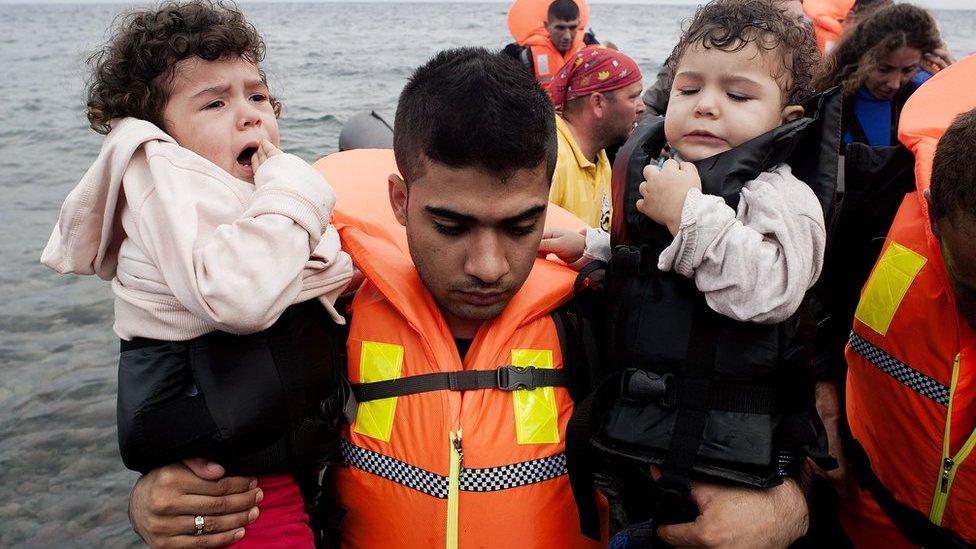
- Published20 September 2015
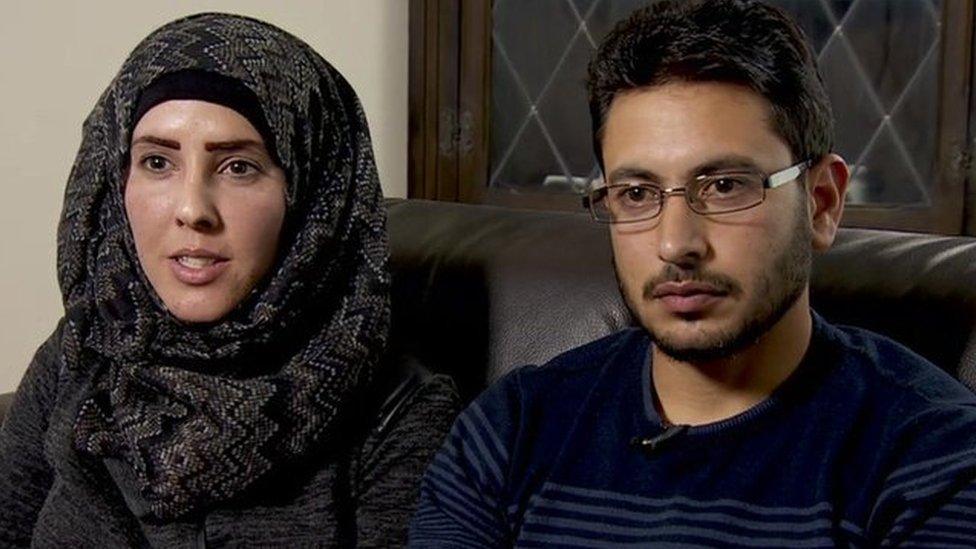
- Published13 September 2015
- Published4 March 2016
